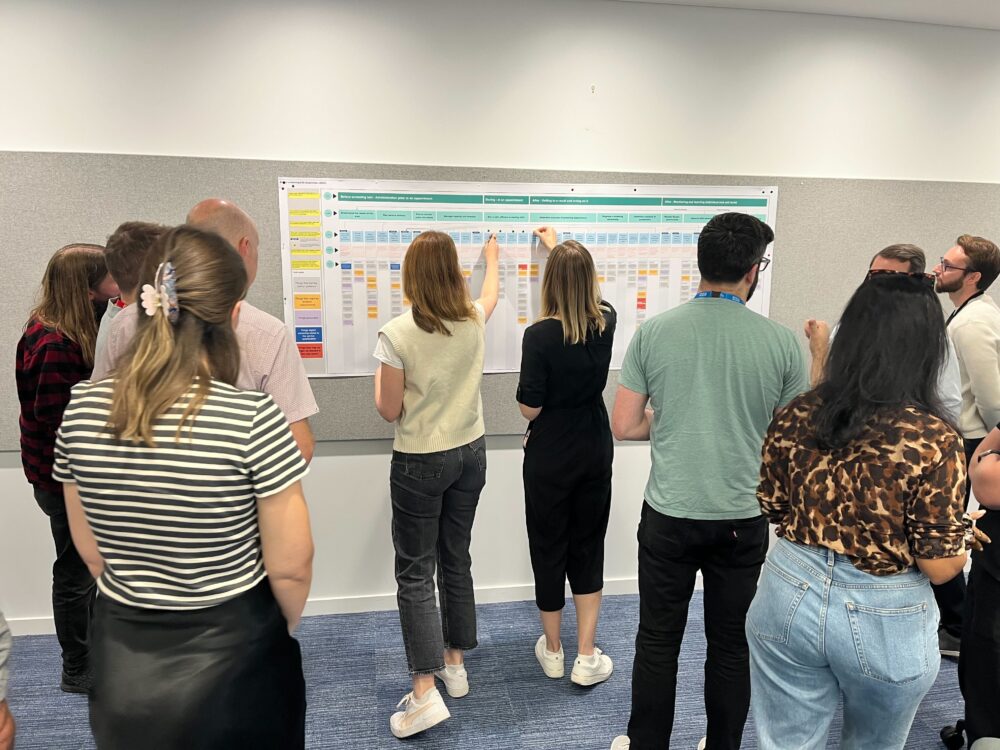Building the future of breast screening reporting

While we are building for the current landscape, we are also working with teams delivering new services to inform data requirements
By improving reporting in NHS England (NHSE), our team is working towards administrative cost savings for the breast screening programme as well as better reuse and interoperability of data.
Work is underway to replace a large piece of legacy software that Breast Screening Offices (BSOs) use to manage people through the breast screening process. While some others from dxw are in teams working with BSOs to build the operational parts, the Breast Screening Reporting team is focused on groups of users who need the data for things like quality assurance and planning.
Our first focus is quality assurance. Performance data is a large part of the NHS’s way of assuring the quality of breast screening services but there are others, like auditing. There is a statutory obligation on those delivering breast screening services to collect and provide data to NHSE.
At the moment, this statutory reporting is facilitated by a NHS-built product. In its simplest form, the product consumes data from source systems, runs checks and presents it back in more user friendly reports.
The work of the Breast Screening Reporting team will be to re-build and improve the reporting. We’ll be doing this on a more modern and centralised platform, the Federated Data Platform, that is consistent with the NHS’ ambitions for better, joined up care.
The improvements were aiming for are to:
- automate the process of getting data from source systems
- make it quicker for users to get access to the platform
- make it easier for users to find what they are looking for, understand it and be able to take action
- manage and support reporting with minimal overhead
Where are we starting?
The KC63 is an annual statutory collection that captures information about the breast screening history of women aged within eligible ranges residing in each Upper Tier Local Authority (UTLAs). Its focus is on coverage – that is, how many eligible women have been screened within a specified timeframe (Source: datadictionary.nhs.uk).
To deliver value early, we are focusing on migrating the KC63 to the Federated Data Platform. Moving a report from one platform to another doesn’t sound like ground breaking work but it will make it much quicker for users to get access to the reports. It will also give us a lot more autonomy when we come to testing and improving the report’s design.
In the medium term, our plan is to enhance KC63 data with other data in the NHS landscape. In fact, some of the team is already testing mock ups with users which has got hugely positive feedback so far. When we get to combining datasets, there are possibilities for supporting round length planning and identifying statistically similar BSOs for more collaboration and information-sharing.
How we are building for the future
A benefit of the Federated Data Platform is that it can centralise commonly used datasets – something that should help speed up report building time and mean more consistency across reports.
For example, UTLAs have boundaries. To be able to plot those boundaries on a map, we need a GeoJSON MultiPolygon in our dataset. It’s likely that other screening programmes (and other teams in the wider NHS landscape) will be plotting UTLAs on maps too. Rather than us all doing this separately, we can share and reuse datasets.
Bringing reporting into the Federated Data Platform also means that skills are more easily transferable. A fully bespoke reporting product requires specific skills and understanding, sometimes these skills are not easily transferable and that causes inefficiencies. The more teams who build reports on the Federated Data Platform, the more it will help the NHS to transfer resources efficiently.
In time, there will be a new central digital service for managing breast screening. While we are building for the current landscape, we are also working with the teams delivering the new services to inform data requirements. We have a deep understanding of data users’ needs and how data needs to be captured and stored to efficiently support automated reporting. Contributing to their planning and informing their data architecture means the services will be able to support operational and non-operational needs sooner than usual.
An impactful partnership
At dxw, we’re building deep expertise in the NHS, with our people contributing to a wide range of digital prevention programmes. Our work is making an impact in areas such as content design, change management, data, and development.
If you’d like to hear more about how we’re helping shape the future of digital healthcare, get in touch.